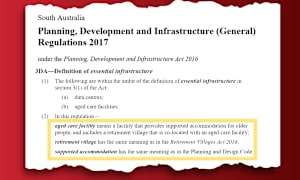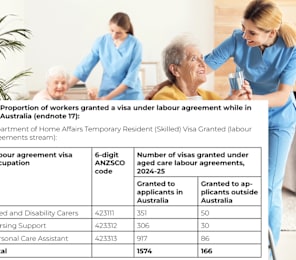On the receiving end of hits from the Government, the regulator and the public for years, many executives have now reached breaking point – leaving the industry at a time when their experience will be invaluable to the post-Royal Commission reform process.
We had a strong response to our survey in last week’s newsletter on the issue of burnout in the industry from senior executives concerned about the impact of increased regulation, scrutiny and negative media on themselves and their staff.
“The sector is under relentless pressure and scrutiny. There is a human cost to the constant criticism and negative publicity. The burnout cost is reflected in people leaving the sector, health impacts, WorkCover costs, lost productivity. It is often a negative feedback cycle too,” said one residential care and home care CEO.
Another residential care and village middle manager agreed: “[Burnout] is high. There are never enough people to do the work required. Aged care is such an underappreciated industry. The money is low, the workload and requirements are high but the only piece keeping people in it is the love for older people. The ever-changing demands and expectations of staff with no reward is what creates the burnout and people looking for work elsewhere.”
Exhaustion among the leadership in the aged care sector has been an ongoing issue for some time.
At the Aged Care Royal Commission’s workforce hearing in October 2019 – almost two years ago – CEOs shared that while they were committed to reform, there was a proportion of the leadership that were tired who would struggle to deal with further reforms.
In our Daily COMMISSION title, we forecast up to 60% of executives would leave the sector within five years. This has since been revised to three years.
The Royal Commission has highlighted that there are cases of sub-standard care – and a genuine need for reform – and leaders we spoke to acknowledged that fact.
But many said the constant wave of reforms was pushing them and their staff to the edge.
“In reality, it is the CEO and the executives who are the punching bags for the industry,” said the CEO of a stand-alone aged care home.
“There needs to be a serious discussion about the mental health of all aged care workers, but more specifically for the CEOs and the executive teams who are really carrying the can.”
Another village and aged care CEO said: “The frequency is increasing. Yet it is not reported as CEO's, we just soldier on until we ‘need to retire’.”
“So publicly there is little reported about burnout but having a discussion within the sector, it is a real problem. Working in the private NFP sector in regional settings, there is very little support, the administrative burden is increasing with no accompanying increase in revenue or staffing. You need to understand the changes and be in a position to assist with or manage the implications.”
What can be done?
Executives have pointed to a number of areas for improvement – including the need for a supportive board.
In this week’s issue of SATURDAY, we talk to Twilight Aged Care Board Chair Lorraine Lovitt, and CEO Neil Wendt about the role of the board in preventing staff burnout at all levels.
Read this story and more in Issue 12 of SATURDAY, in your inbox at 6am, Saturday 14 August.










